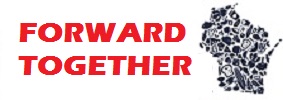Block Grant FAQ
Background
There are a number of Federal legislative initiatives that seek to "block grant" important nutrition programs like SNAP/FoodShare and the National School Lunch Program.
We are opposed to these proposals because they would structurally change the way our nation's vital nutrition assistance programs work, making it difficult for them to be nimble and responsive to changes in local need.
SNAP/FoodShare and the National School Lunch Program are mandatory, means-tested Federal nutrition assistance programs. This means that the Federal government provides funding to State governments to locally administer nutrition assistance programs. Because the funding is guaranteed by the Federal government, every eligible family that applies and is determined to be qualified will get help.
In return, states must meet performance standards and other program integrity and accountability measures.
Converting these programs into block grants would cap their funding and limit the number of people who can participate at any given time. Such a policy would break the important promise that we have made to help families who are working through tough times with basic nutrition assistance.
Furthermore, it would weaken Federal oversight and accountability standards. Depending on how rules are interpreted, states may be able to utilize block grant funds for other purposes that may only be minimally related to providing nutrition assistance.
We expect that calls to block grant our nation's cornerstone nutrition assistance programs to continue into the future and we are providing this FAQ to help you understand what's at stake. We hope that you will stand with us to push back against these proposals as they come up.
What's a block grant?
A block grant is when the federal government awards states a lump sum of money to address a specific issue or problem. States are typically given broad flexibility to design and implement the program with little oversight and few requirements.
How is this different than the way these programs are structured?
Currently, the Federal government guarantees funding to SNAP/FoodShare and the National School Lunch/School Breakfast program. This means that any family that is eligible, applies and is found to be qualified under existing participation rules will receive help.
A block grant of nutrition programs would cap the amount of funding available to states and allow states to change eligibility rules and benefit levels. By limiting the amount of funds, block grants make nutrition assistance programs less responsive to changes in local need.
Why do some favor this approach?
Those who favor block grants argue that programs are more effective and better suited to each state's local needs when decision-making shifts to the states.
Why is Feeding Wisconsin and many other nutrition advocates opposed to block grants?
Block grants fundamentally alter the way these programs are structured and undermine the systems of accountability set up by Federal oversight.
They would break the promise that every family who is eligible and qualifies for assistance can get it. This is because by converting guaranteed programs like SNAP/FoodShare and the National School Lunch Program into block grants, the federal government sends a limited amount of money to the states. Increasing the block grant amount will be difficult and time consuming in times of economic distress.
Block grants discourage states from increasing program performance and efficiency. Currently, there is an incentive system in place that encourages states to improve program accuracy and efficiency. By issuing a lump sum payment, states lose the incentive to improve program administration.
How might a block grant affect nutrition programs?
In a potential school lunch block grant program, Wisconsin may only get enough funding to provide 50,000 children with a free or reduced price lunch. Unless the state came up with additional money, every other eligible child living in a family with a low-income would have to go on a waitlist.
Similarly, in a potential FoodShare block grant program, Wisconsin may only get enough funding for 300,000 families to receive aid. That might be fine when times are good but the state would be challenged to serve all families in need during a time of an economic shock or downturn.
For example, if a local factory shut down and 5,000 people were suddenly out of work, the state would only be able to help these people with FoodShare if it had 5,000 open cases. If it didn't, then they would go to the back of a waitlist.
Currently, FoodShare is structured to be able to serve every eligible family who applies and qualifies under the income guidelines.
Is it true that block grants would increase state flexibility?
States already have considerable flexibility in administering programs as it is through waivers and demonstration projects. Any additional flexibility that the block grant mechanism provides is at risk of being misused at the expense of program participants (i.e. reducing eligibility and benefits) and provides an indirect means of reducing program funding.
We can increase program flexibility without undermining the structure of the programs by empowering USDA to create more evidence-based waivers and funding more innovative demonstration projects that would more effectively tailor these programs to individual need.
Are there examples of what happens when a program is block granted?
Yes. In 1996, the Aid to Families with Dependent Children (AFDC) program was block granted into the Temporary Assistance to Needy Families (TANF) program through a bill called The Personal Responsibility and Work Opportunity Reconciliation Act, otherwise known as Welfare Reform.
While experts are split on whether or not Welfare Reform was a success, the number of people living in poverty that receive cash assistance fell precipitously after the bill was signed into law.
The chart below shows a three decade trend line of the number of families living in poverty and the number receiving cash assistance in our state.
If your measure for success is the number of families living in poverty who receive cash assistance, then the data suggest that the TANF block grant was a failure.
Where can I learn more?
- We made a fun infographic about block grants that you can share
- The first season of "The Uncertain Hour" did some deep reporting on welfare reform
- The data-driven site Five Thirty Eight shows how most welfare spending does not go to families who are poor
- A 2005 policy brief on block grants from The Brookings Institute
What can I do?
You can let your Representatives know that you support a strong SNAP program and that you do not support structurally changing the program through block grants.



